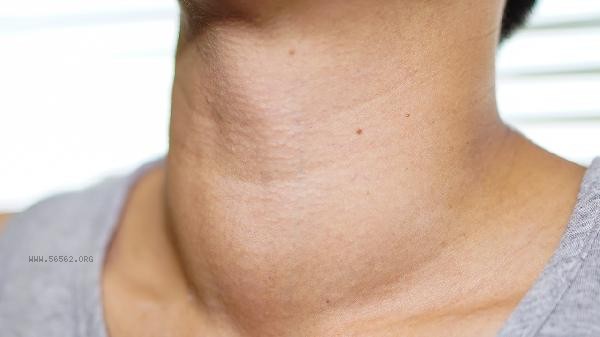Thyroid stimulating hormone TSH greater than 50 μ IU/mL is considered significantly elevated, usually indicating that hypothyroidism is in a more severe stage. Abnormal elevation of TSH may be related to factors such as primary hypothyroidism, Hashimoto's thyroiditis, thyroid surgery, or radiation therapy, and should be comprehensively evaluated in conjunction with indicators such as free thyroxine FT4.

1. classification of hypothyroidism:
TSH>50 μ IU/mL belongs to the category of severe hypothyroidism. The normal TSH range is 0.4-4.0 μ IU/mL, with mild hypothyroidism TSH at 4-10 μ IU/mL and moderate TSH at 10-50 μ IU/mL. When TSH exceeds 50 μ IU/mL, metabolic disorders are evident and may be accompanied by severe manifestations such as mucoedema.
2. Typical Symptoms:
Patients may experience symptoms of decreased basal metabolic rate such as fear of cold, fatigue, weight gain, and memory loss. In severe cases, they may experience slowed heart rate, facial swelling, dry and flaky skin. Some patients may experience complications such as anemia and hypercholesterolemia.
3. Etiological analysis:

Hashimoto's thyroiditis is the most common cause, accounting for about 80% of cases of hypothyroidism. Other reasons include post thyroidectomy, radioactive iodine therapy, pituitary lesions, etc. Pregnant women with elevated TSH should also be alert to the impact of gestational hypothyroidism on fetal neurological development.
4. Testing verification:
A complete set of FT3, FT4, TPOAb, TGAb thyroid function needs to be rechecked, and thyroid morphology needs to be examined by ultrasound. Pituitary hypothyroidism requires MRI examination. For individuals with TSH levels consistently above 50 μ IU/mL and a significant decrease in FT4, it is recommended to seek immediate treatment at an endocrinology department.
5. Treatment principle:
Long term use of levothyroxine sodium replacement therapy is required, with the initial dose calculated based on body weight and adjusted every 4-6 weeks. Elderly patients and those with coronary heart disease should start with small doses. The treatment goal is to control TSH within an individualized target range. Patients with hypothyroidism should ensure high-quality protein intake and supplement selenium containing foods such as Brazil nuts and oysters in moderation. Avoid consuming large amounts of foods such as cabbage and cassava that can cause thyroid enlargement. Regularly monitor resting heart rate in the morning and keep warm in winter. It is recommended to recheck thyroid function every 3-6 months and increase monitoring frequency during pregnancy. Patients with combined hyperlipidemia should control the intake of animal organs and engage in aerobic exercises such as brisk walking and swimming appropriately.










Comments (0)
Leave a Comment
No comments yet
Be the first to share your thoughts!